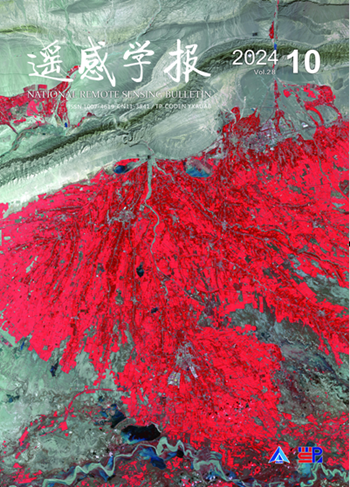Quantitative Evaluation of Leaf Inclination Angle Distribution on Leaf Area Index Retrieval of Coniferous Canopies
引用次数: 14
Abstract
Both leaf inclination angle distribution (LAD) and leaf area index (LAI) dominate optical remote sensing signals. The G-function, which is a function of LAD and remote sensing geometry, is often set to 0.5 in the LAI retrieval of coniferous canopies even though this assumption is only valid for spherical LAD. Large uncertainties are thus introduced. However, because numerous tiny leaves grow on conifers, it is nearly impossible to quantitatively evaluate such uncertainties in LAI retrieval. In this study, we proposed a method to characterize the possible change of G-function of coniferous canopies as well as its effect on LAI retrieval. Specifically, a Multi-Directional Imager (MDI) was developed to capture stereo images of the branches, and the needles were reconstructed. The accuracy of the inclination angles calculated from the reconstructed needles was high. Moreover, we analyzed whether a spherical distribution is a valid assumption for coniferous canopies by calculating the possible range of the G-function from the measured LADs of branches of Larch and Spruce and the true G-functions of other species from some existing inventory data and three-dimensional (3D) tree models. Results show that the constant G assumption introduces large errors in LAI retrieval, which could be as large as 53% in the zenithal viewing direction used by spaceborne LiDAR. As a result, accurate LAD estimation is recommended. In the absence of such data, our results show that a viewing zenith angle between 45 and 65 degrees is a good choice, at which the errors of LAI retrieval caused by the spherical assumption will be less than 10% for coniferous canopies.针叶冠层叶面积指数反演中叶倾角分布的定量评价
叶倾角分布(LAD)和叶面积指数(LAI)均主导着光学遥感信号。G函数是LAD和遥感几何的函数,在针叶冠层的LAI反演中通常设置为0.5,尽管这一假设仅适用于球形LAD。因此引入了很大的不确定性。然而,由于针叶树上生长着许多微小的叶子,在LAI检索中几乎不可能定量评估这种不确定性。在本研究中,我们提出了一种方法来表征针叶冠层G函数的可能变化及其对LAI反演的影响。具体而言,开发了一种多向成像仪(MDI)来捕捉树枝的立体图像,并对针头进行了重建。从重建的针头计算出的倾斜角度的精度很高。此外,我们通过从落叶松和云杉枝条的LAD测量中计算G函数的可能范围,以及从一些现有的库存数据和三维(3D)树木模型中计算其他物种的真实G函数,分析了球形分布是否是针叶树冠层的有效假设。结果表明,常数G假设在LAI反演中引入了较大的误差,在星载激光雷达使用的天顶视角方向上,误差可能高达53%。因此,建议进行准确的LAD估计。在没有这些数据的情况下,我们的结果表明,45度至65度之间的观测天顶角是一个很好的选择,在这个角度下,由球面假设引起的针叶冠层LAI反演误差将小于10%。
本文章由计算机程序翻译,如有差异,请以英文原文为准。
求助全文
约1分钟内获得全文
求助全文
来源期刊

遥感学报
Social Sciences-Geography, Planning and Development
CiteScore
3.60
自引率
0.00%
发文量
3200
期刊介绍:
The predecessor of Journal of Remote Sensing is Remote Sensing of Environment, which was founded in 1986. It was born in the beginning of China's remote sensing career and is the first remote sensing journal that has grown up with the development of China's remote sensing career. Since its inception, the Journal of Remote Sensing has published a large number of the latest scientific research results in China and the results of nationally-supported research projects in the light of the priorities and needs of China's remote sensing endeavours at different times, playing a great role in the development of remote sensing science and technology and the cultivation of talents in China, and becoming the most influential academic journal in the field of remote sensing and geographic information science in China.
As the only national comprehensive academic journal in the field of remote sensing in China, Journal of Remote Sensing is dedicated to reporting the research reports, stage-by-stage research briefs and high-level reviews in the field of remote sensing and its related disciplines with international and domestic advanced level. It focuses on new concepts, results and progress in this field. It covers the basic theories of remote sensing, the development of remote sensing technology and the application of remote sensing in the fields of agriculture, forestry, hydrology, geology, mining, oceanography, mapping and other resource and environmental fields as well as in disaster monitoring, research on geographic information systems (GIS), and the integration of remote sensing with GIS and the Global Navigation Satellite System (GNSS) and its applications.
 求助内容:
求助内容: 应助结果提醒方式:
应助结果提醒方式:


